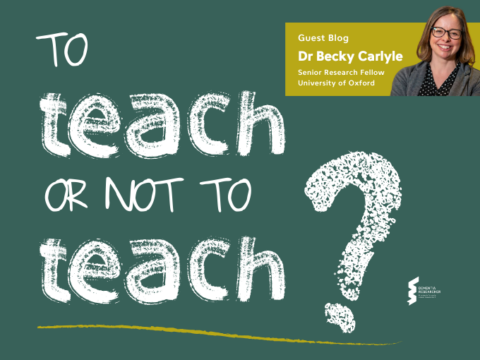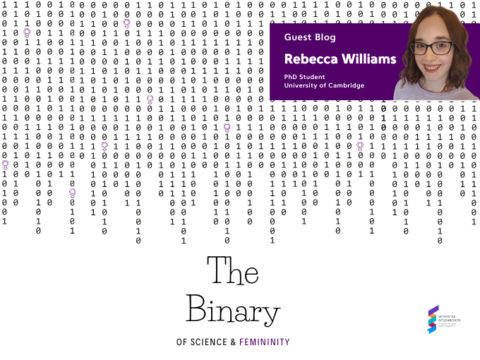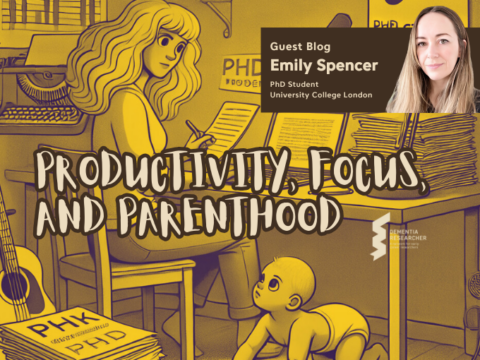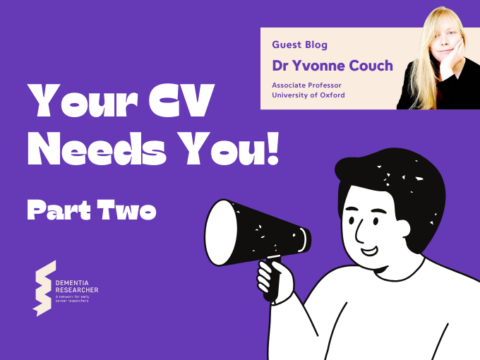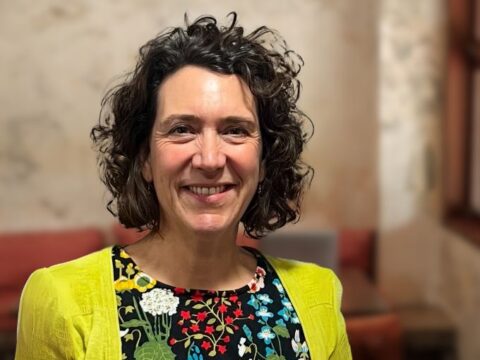In January this year I embarked on a PhD. It was a journey that, for much of my career, I hadn’t thought I would ever take. Following an undergraduate degree in Psychology, I went on to qualify as a Speech and Language Therapist from City University in 2002. After a couple of years of working, I developed a passion for the area of dementia and before long I was working exclusively with people with this condition. I was focused on improving services for the people I worked with, demonstrating the value of Speech and Language Therapy and developing my practice based on research that I had read. I was less good at telling people what I was doing, sharing my ideas or shouting about my successes. I was always keen to stretch myself and develop my skills (both clinical and non-clinical) but less good at identifying the right path for me personally; carrying out formal research myself certainly didn’t cross my mind.
I was lucky enough to have a manager who recognised the uncertainty in my ambition. She sat me down and encouraged me to reflect on where I saw my future. That conversation led to me applying to do an MSc in Dementia Studies at the University of Bradford, which I started in 2008. I completed my dissertation on the use of Intensive Interaction with people who have dementia, and was excited by the positive impact on relationship building and connection that I had observed. By the time I completed the course I was a new mum, and I had sworn off further study. I was proud to now have three degrees under my belt, but I didn’t feel like I had the energy or the confidence to take it any further. However, through presenting my MSc dissertation work to Special Interest Groups and conferences, I saw the impact I could have through sharing my work more widely.
 I started to play with the idea of doing a PhD but for one reason or another the timing wasn’t quite right – in other words, I found numerous excuses why it wasn’t for me. I saw myself as a clinician, not an academic, and if I’m honest I probably saw research as being removed from the real world. I have a clinical career which stimulates and challenges me so while routes into academia have opened up for clinicians, I wasn’t particularly motivated to follow up on those opportunities. I knew I wanted to achieve something practical, that clinicians and carers would be able to benefit from to improve lives of people with dementia, and I was struggling to see how a PhD might fit into that.
I started to play with the idea of doing a PhD but for one reason or another the timing wasn’t quite right – in other words, I found numerous excuses why it wasn’t for me. I saw myself as a clinician, not an academic, and if I’m honest I probably saw research as being removed from the real world. I have a clinical career which stimulates and challenges me so while routes into academia have opened up for clinicians, I wasn’t particularly motivated to follow up on those opportunities. I knew I wanted to achieve something practical, that clinicians and carers would be able to benefit from to improve lives of people with dementia, and I was struggling to see how a PhD might fit into that.
Then in March 2020 I saw a funded PHD studentship advertised, looking at the impact of intergenerational interactions on the communication of people with dementia. The timing was undeniably terrible. We were at the start of a global pandemic, I was home schooling my son and covering two jobs due to a management vacancy. But I knew straight away that this was for me. I realised that all my previous excuses were just procrastinations. The hesitation I’d felt dissipated because I felt passionate about the topic. I felt I had something to offer and, while I was terrified at the idea of returning to research after nine years, I knew I had to give this a try. Nevertheless, I was still surprised to be successful at interview!
Of course, when I started my studies in January, imposter syndrome kicked in. However, completing the Research Development Framework helped me to identify the transferrable skills from my clinical work that are relevant to this new challenge. The framework also highlighted the development areas that I needed to focus on initially – research methods mostly, but the framework and UCL induction sessions helped me to see that a PhD is not just about research skills – it’s about the ability to collaborate, to network, to put patient needs first and to understand the issues that they and their carers face, to think critically and to consider realities of the real-world. These are all skills that I have developed in almost 20 years of working in the NHS. Reflecting on my new beginnings in research (as a 40-something, part-time working Mum), has helped me to recognise the value of those years of clinical experience; and that has given me the confidence to be comfortable with being in the ‘consciously incompetent’ stage of my development. I know I have a lot to learn, and having the time and capacity to absorb myself in that learning is stimulating and exciting. I’ve also learned to trust my instincts more – I’m not here because the timing was right, or because it was the next logical step in my career, but because I have a chance to add to what we know about something that I feel passionate about, and to contribute to improving lives… and because it’s never too late!
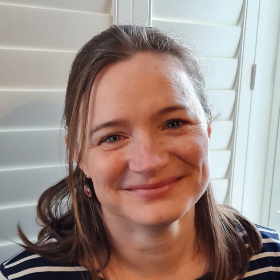
Charly Harris
Author
Charly Harris is a Professional Lead for Speech & Language Therapy at Sussex Community NHS Foundation Trust and has recently embarked on a PhD. From early in her career, Charly was frustrated by poorly funded SLT services for people with dementia alongside a lack of recognition about what SLTs can offer, particularly for those in the later stages of the condition. Through her new role in academia, Charly hopes to develop knowledge and demonstrate the positive benefits that SLTs can have on quality of life for people with dementia throughout the course of the illness.

 Print This Post
Print This Post
